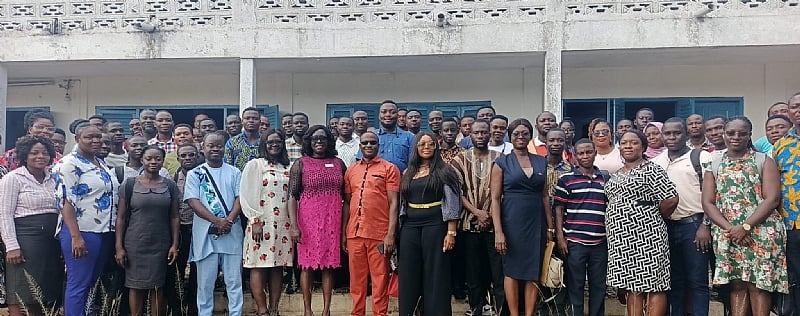The Girls-In-ICT programme, spearheaded by the Ministry of Communications and Digitalisation in Ghana, aims to bolster digital literacy among young girls by training teachers in the Ashanti Region. This initiative is supported by the International Telecommunications Union and is strategically aligned with the department’s goals to inspire girls to embark on careers in Information and Communication Technology (ICT). The initiative’s first phase, aptly named the “Training of Trainers,” kicked off on October 21, 2024, at Kumasi Mancel Senior High School and is expected to continue until October 25. With the objective of cultivating a new generation of female technologists and leaders, the programme combines efforts from notable organizations including the Kofi Annan Center of Excellence in ICT and the Ghana Investment Fund for Electronic Communications.
The extensive training program involves 100 teachers who will ultimately assume the role of mentors and trainers for their students. By equipping these educators with essential computer and digital skills, the initiative seeks not only to enhance their own capabilities but also to empower them to become effective role models for young girls. Mr. Isaac Newton, a Programmes Officer at the Policy, Planning, Budget, Monitoring & Evaluation (PPBME) unit, represented the sector minister during this training session. He stressed how crucial this initiative is in fulfilling the ministry’s goal of empowering young women and providing them with the necessary expertise to become leaders, innovators, and pioneers in an increasingly digital world.
Mr. Newton elaborated on the ambition behind the program, highlighting that the current training is specifically intended to benefit 1,000 girls across the Ashanti Region. He noted that the influence of these trained teachers will extend beyond mere technical instruction; their roles will include inspiring confidence, instilling resilience, and fostering ambition among the girls. Such qualities are essential for young women who aspire to succeed in the challenging field of ICT. This multifaceted approach aims to ensure the holistic development of the students, preparing them not just with technical skills, but also with the emotional fortitude and personal growth required to navigate the digital landscape.
The workshop’s robust curriculum focuses on innovative teaching methodologies, best practices in ICT education, and strategies for fostering an inclusive learning environment. By enhancing teachers’ pedagogical skills, the initiative seeks to create classes that engage and motivate every girl, regardless of her background or previous exposure to technology. Mr. Newton ensured that the ultimate goal is to shape a positive and empowering educational environment where girls feel valued and encouraged to pursue their aspirations without hesitation.
Overall, the Girls-In-ICT programme stands as a testament to the commitment of the Ghanaian government and its partners in bridging the gender gap within the ICT sector. By focusing on comprehensive capacity-building among educators, the initiative sets the stage for a transformational change within the educational landscape. This emphasis on empowering teachers as agents of change underscores the long-term vision of fostering a generation of women who are not only consumers of technology but also creators and leaders in their own right.
In conclusion, the success of the Girls-In-ICT programme hinges on the collaborative efforts of the Ministry of Communications and Digitalisation, educational institutions, and international partners. By cultivating a supportive framework for training teachers and, subsequently, young girls, the initiative seeks to combat the existing gender disparities in technology-related fields. Through sustained investment in digital skills training and an unwavering commitment to equity in education, this programme represents a significant step toward empowering young women in the Ashanti Region and beyond, ultimately aiming to prepare them to thrive in the global digital economy.














